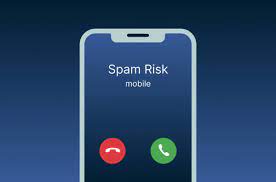Warning: Who Is Calling Me from These Numbers uk 8007613362, 08456021111,1315614532 8456021111,07868 802242, 0131 561 4532, 7868802242,8000521251,0800 023 2635, 8004970747, 0800 052 1251, 8000232635, 3001232323, 0800 497 0747, 2037810895, 8000338005, 3452962834, 7700161656, +44 800 761 3362, or in the UK?
Introduction
warning who is calling me from this number: where communication is easier than ever, we often find ourselves bombarded with calls from unfamiliar numbers. While some of these calls may be innocent, others can pose serious threats. Scammers and fraudsters use unknown numbers to trick unsuspecting victims into divulging sensitive information or falling for various scams. In this article, we will delve into the world of unknown callers, exploring the dangers they present and equipping you with the knowledge to protect yourself from potential harm.
Also read : https://spikysnail.com/2023/07/24/unveiling-the-identity-of-callers-investigating-911196954-607123000/
Understanding the Threat of Unknown Callers
Unknown callers, often referred to as “phone number spoofers,” manipulate caller ID information to conceal their true identity. This technique allows them to trick recipients into thinking the call is legitimate, leading to a higher chance of their fraudulent schemes succeeding. By appearing to call from a trustworthy source, such as a bank or government agency, scammers aim to exploit your trust and gain access to your personal and financial details.
Why Are Unknown Calls Dangerous?
Unknown calls can be dangerous for several reasons:
- Identity Theft: Scammers may attempt to extract personal information, such as your Social Security number or credit card details, to commit identity theft and financial fraud.
- Financial Loss: Some unknown callers employ deceptive tactics to coerce you into sending money or making fraudulent transactions, resulting in significant financial losses.
- Malware Distribution: Tech-savvy scammers might try to trick you into downloading malicious software onto your devices, compromising your data and privacy.
- Harassment and Threats: In some cases, unknown callers may engage in harassment, making menacing threats or disturbing your peace of mind.
The Most Common Scams and Frauds
1. Phishing Scams
Phishing scams involve impersonating legitimate organizations via phone calls or messages to obtain sensitive information. They may claim to be from banks, government agencies, or trusted companies, aiming to deceive you into revealing personal details.
2. IRS Impersonation Scams
In these scams, fraudsters pose as representatives from the Internal Revenue Service (IRS), threatening victims with legal action or arrest if they don’t pay alleged back taxes immediately.
3. Tech Support Scams
Tech support scammers pretend to be IT experts from reputable companies, warning you of non-existent computer issues and offering assistance for a fee.
4. Kidnapping Scams
These terrifying scams involve callers claiming to have kidnapped a loved one and demanding ransom for their safe return, playing on your emotions and fear.
Recognizing Suspicious Numbers
1. Toll-Free Numbers (800, 888, 877, etc.)
Scammers often use toll-free numbers to appear legitimate and trustworthy. However, reputable organizations will never ask for sensitive information over the phone.
2. International Numbers
Calls from international numbers, especially those from unfamiliar countries, can be suspicious. Exercise caution when dealing with such calls.
3. Calls from Hidden or Blocked IDs
Calls from hidden or blocked IDs raise a red flag, as legitimate callers usually display their phone numbers.
How to Investigate Suspicious Calls
1. Using Reverse Phone Lookup Services
Reverse phone lookup services allow you to identify the caller’s name, location, and other essential details, helping you assess the call’s legitimacy.
2. Contacting Your Phone Provider
Reach out to your phone provider to report suspicious calls. They may block the number or provide additional guidance.
3. Reporting the Number to Authorities
Report suspicious numbers to local law enforcement or regulatory agencies to help prevent scams and protect others from falling victim.
Protecting Yourself from Unknown Callers
1. Installing Caller ID Apps
Caller ID apps can identify unknown numbers and warn you about potential scams before you answer the call.
2. Blocking Unwanted Calls
Use your phone’s built-in blocking feature or install apps that allow you to block specific numbers.
3. Avoiding Sharing Personal Information
Be cautious about sharing personal information over the phone, especially if the caller’s identity is uncertain.
Taking Legal Action Against Harassment
If you experience persistent harassment from unknown callers, consult with legal professionals to explore options for taking legal action against the perpetrators.
Conclusion
Unknown callers can be a significant threat, attempting to exploit your trust and vulnerability for malicious purposes. By understanding the risks and taking preventive measures, you can shield yourself from falling prey to scams and frauds. Always stay vigilant, and remember to report any suspicious calls to protect yourself and others from potential harm.
FAQs
-
How can I avoid falling victim to phishing scams?
- Never provide personal information over the phone unless you are certain about the caller’s identity.
- Contact the organization directly using official contact information to verify the request.
-
What should I do if I receive a suspicious call demanding money?
- Hang up immediately.
- Contact your local authorities to report the incident.
-
Can unknown callers infect my devices with malware?
- Yes, some scammers use phone calls to distribute malware.
- Avoid downloading anything from unknown sources.
-
Are there any government agencies that make unsolicited calls?
- Government agencies usually communicate official matters through mail or secure portals.
- Be cautious of unsolicited calls claiming to be from government bodies.
-
How can I protect elderly family members from unknown callers?
- Educate them about potential scams and the importance of not sharing personal information.
- Set up caller ID apps on their phones to help identify suspicious calls.

